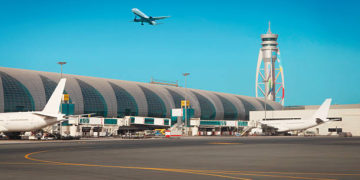The South Korean government will meet with a union of striking truckers on Monday for early talks of a five-day nationwide walkout as supply chain problems worsen and concrete runs out at construction sites.
The government, which estimates daily losses at about 300 billion won ($224 million) due to shortages of cement and fuel for gas stations, has raised its warning of disruption of cargo transportation to the highest level.
But the union had little prospect of a breakthrough in the second major strike in less than six months, as thousands of truckers demanded better wages and working conditions.
“The position of the Ministry of Transport is already defined, and there is no room for negotiations, so this meeting is not a negotiation. The content is a request for an unconditional return to work,” the union said in a press release on Sunday.
The strike disrupts industrial activity when Asia’s fourth-largest, export-dependent economy faces weaker-than-expected growth next year as the central bank cut its 2023 forecast to 1.7 % versus 2.1%.
“We must establish the rule of law between workers and management,” President Yoon Suk-yeol Yoon said Monday, according to the presidential office.
Yoon, who criticized the strike as holding the country’s logistics “hostage” to the economic crisis, will have a cabinet meeting on Tuesday to consider a “labour order” for truckers to return to work, pointing to his office.
The law allows the government to issue such an order during a severe transport disruption, and failure to comply can be punished with up to three years in jail or a fine of up to 30 million won ($22,550).
Strike organiser the Cargo Truckers Solidarity Union (CTSU) has criticised the government for being unwilling to expand a minimum-pay system beyond a further three years instead of meeting union demands to make it permanent and widen its scope















































